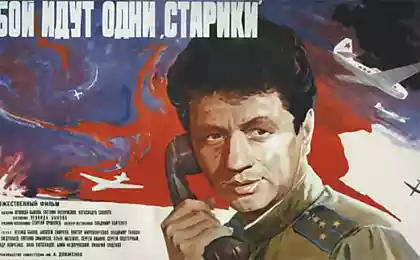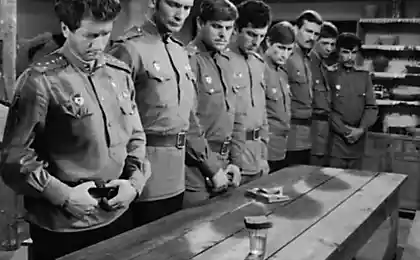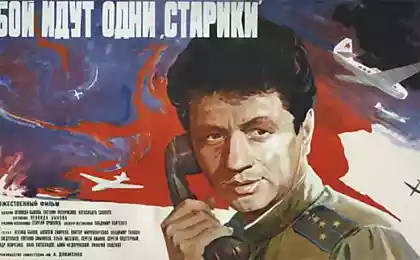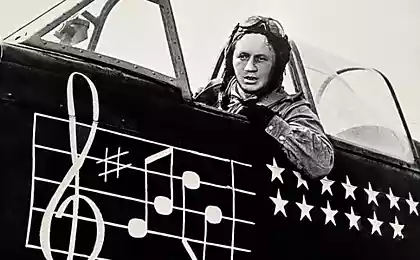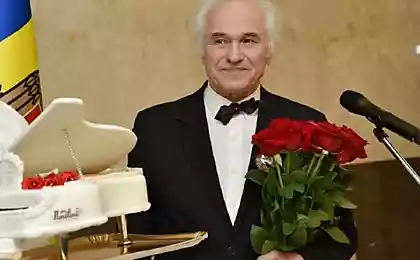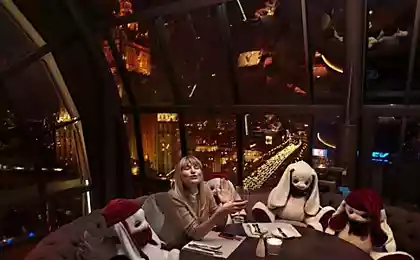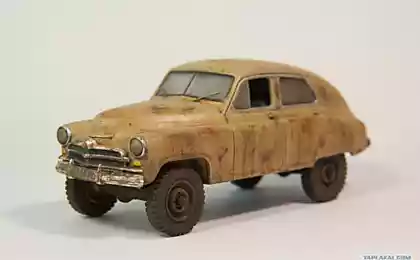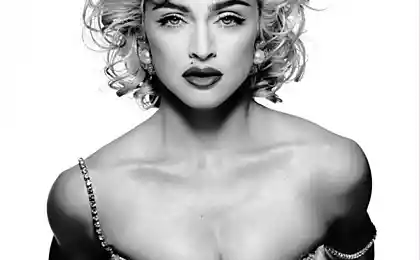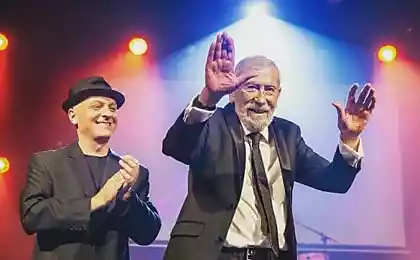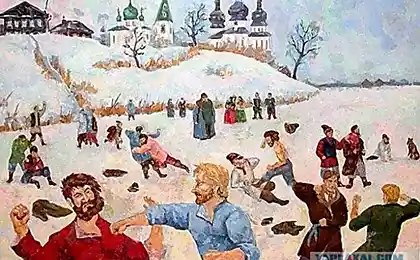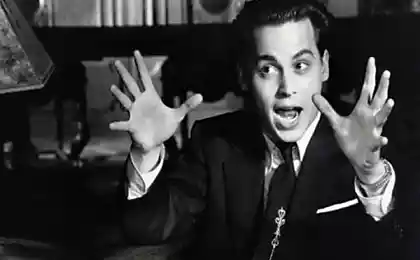944
Maestro
It is just incredibly many letters, but 2 weeks as the dug out and designed and yet something kept to post now zaposchu simply out of principle.
13 posts are expected to mnogobukvami and pictures.
February 6, 2010 passed away an outstanding pilot, ace WWII Vitaly Popkov. I tried somehow to link it to the existing information on the Internet, I hope I get something.
Vitaly Popkov was born on May 1, 1922 in Moscow. He graduated from the school № 94 in Moscow. In the Soviet Army in 1940. He graduated from Chuguev military pilots flying school in 1941 (in his release is 59 Heroes of the Soviet Union, 8 twice Hero of the Soviet Union: Popkov, Vorozheikin, Gritsevets, elections and others and three times Hero of the Soviet Union IN Kozhedub) Bataisk military -aviatsionnuyu school pilots in 1942. In the army in May 1942
Popkov VI commanded a unique squadron, in which 14 pilots - 11 became Heroes of the Soviet Union, eight met the Victory Day ... The squadron became known as the "Singing Squadron" after it was created by an amateur jazz orchestra.
During the fighting in World War II he made 648 sorties, conducted 117 air battles, shot down while 47 enemy planes in person and 13 aircraft in the group, made 123 of attack airfields and ground targets of the enemy (the latest version of the official data, as I understand it).
The Korean campaign as deputy division commander at INKozhedub, personally shot down 4 aircraft and one B-29 with the secret equipment on board forced to land on a strip of sea tide.
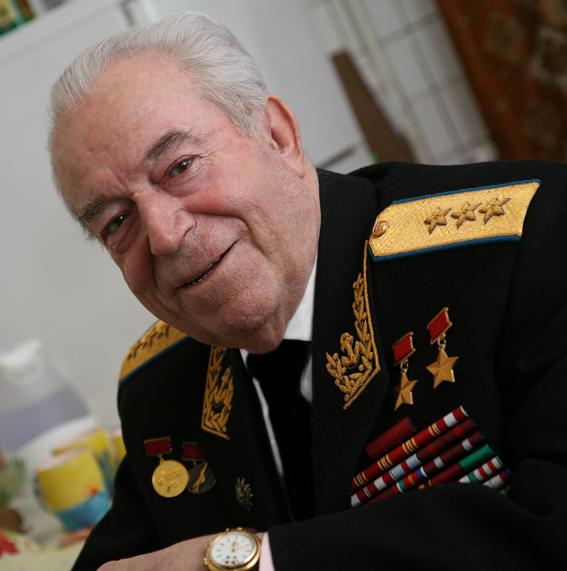
2
Vitaly got to the front only in the 42nd. Since the beginning of the war favorite service (he remained as an instructor in Bataisk school pilots) has become a burden, and after the 6th report, in spring, when the military situation again became rapidly complicated, Sgt Popkov was sent to the front, in a nice 5th Guards Fighter Regiment (207 th Fighter Air Division, 17th Air Army, South-Western Front). No heroic past, like the hero of Bykov, he was not. But it was defiant youthful moment. m of two characters in the movie - a nice and lively squadron leader Lieutenant Alexandrov, Grasshopper.
On arrival in the regiment, Sergeant Popkov immediately went to the airfield to one of the aircraft LaGG-3 - workout. And then he was kicked out of the combat vehicle mechanic who did not expect to see a disheveled young man in a combat pilot. And the view from Vitaly was unflattering - on the train he stole the coat and if not the commander of one of the railway stations, loans to its old sukonkoy which reached youngster to toe, you do not know how he would have looked in the face of the regimental commander Vasily Zaitsev, that is, immediately after the presentation, Vitali sent in flight training.
Requirements for the first flight of the minimum - taking off, a couple of laps in the zone and landing. But youth and excitement took its Vitaly and began to perform a variety of aerobatics without even leaving the zone. After landing, he went to the commander who all these "freaks" is not impressed, and to get along on the vigil of the aerodrome (in another version - the kitchen) up to about the end of time. As a result, the young pilot was not allowed to in flights for two months.
As you can see, Vitaly became the movie "go to fight some old" is not only a prototype of the legendary squadron leader, and a young lieutenant Aleksandrov-Grasshopper.
LaGG-3
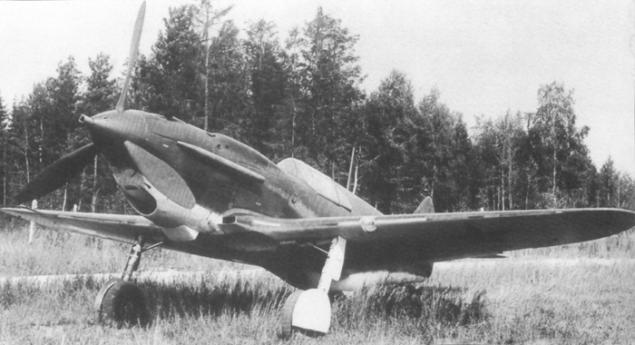
3
In March 1942, at a time when almost the entire regiment flew on a mission, there were German planes - two bombers "Junkers-87" (in another version - Dornier-217, but, as I understand it, on the Eastern Front such was not such Stuck here) and two fighter "Messerschmitt-BF109" with the clear intention to attack the airfield. Vitaly has appeared closest to the aircraft, and has been - without a parachute flight uniforms and immediately jumped into the cab, took off, and rushed to the attack from the first call has filled slow-speed bomber. The commander of the regiment at this time shaving, and just what was - in a T-shirt, rushed to their planes and took off after him. But the German planes had already left. For downed aircraft commander Popkov was forgiven and his colleagues observed due respect - moved into the category "old", ie, Pilots had to his credit at least one person downed enemy aircraft. Its first leader was the Hero of the Soviet Union Vladimir Efremov.
By the way, Vitaly told that described the film gala reception Grasshopper after this fight and the phrase: "You Comrade Commander, his underwear scared away all Germans" were in reality.
Ju-87 Stuka
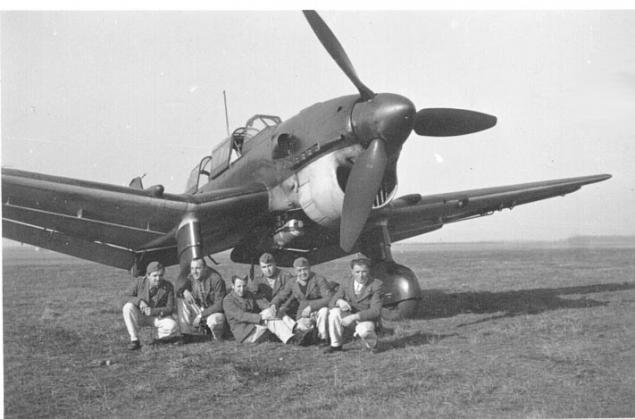
4
At first, the young pilot to an acute lack of combat experience, the ability to "read" the battlefield. This resulted in injury, damage to equipment, three times during the war Vitaliy Popkov was shot down.
One day, he saw a pair of Bf-109, going in the right lower bearing of his passing-collision course. The best position for the attack is not possible to come up with, but something unexpected happened. "Messer," as if stumbled upon some sort of barrier. They rushed up again, and a moment later both fan broke.
Driven by a steep set of went our way. Pilots mastered hunting passion. Very moving his throttle lever forward to the stop, he put the car in acceleration. The range between the aircraft quickly reduced. In the mind there was nothing but the prediction of the coming victory. Immediately followed by a heavy blow, the motor stopped, the fire started.
It became clear that the Germans acted on clearly conceived plan, and the plan worked. They sharply climbing fanned out. The calculation was simple. When someone in our rush for one of these coveted easy prey, the second by performing a maneuver, a blow from behind.
Well, who does not know him
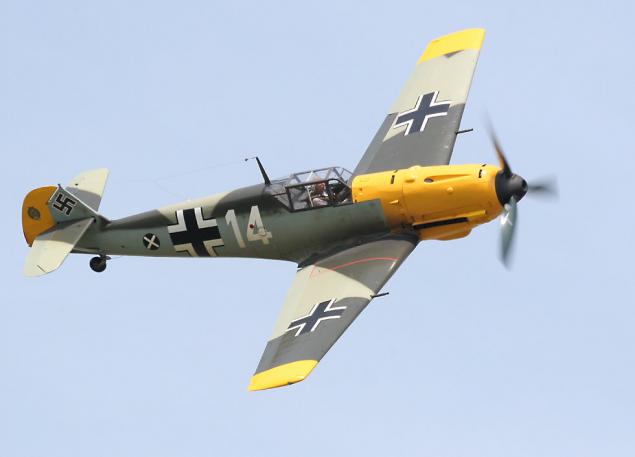
5
Gradually, in the intense air battles, Vitaliy Popkov was gathering skill. And increased the number of his victories. A few days later in the battle of "6 vs 30" he was able to destroy even one bomber. In the battle of Rzhev, in August 1942, Vitali knocked down 5 aircraft. In one of the battles he was hit and bailed out.
Then, in the whirl of positional battle, he managed to catch the sights and hit the enemy fighter, a moment later disappeared in a cloud of the explosion, and immediately clear, as in the picture, he saw another "Messerschmitt Bf-109", neatly parked in the tail of the car his driving Guard Major Efremov. Very maneuver, so that through the hoarse roar of the engine seemed to hear the eerie crunch congested spars, Popkov threw his "LaGG" between enemy aircraft and aircraft commander ...
Several shells shook his car from under the hood seemed bluish light, removable growing yellow flame. Second - and the fire got inside, lit coveralls, gloves, fire scorched face. Already losing consciousness, the pilot turned the plane and fell out of the cab. Burned flag parachute did not hold, it only slowed the decline, fortunately, he fell into a swamp, where selected by parachute cords
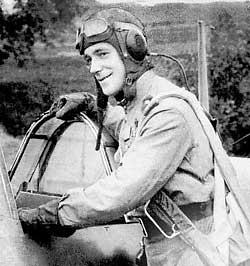
6
At the end of March 1942 5 GvIAP in which twenty Vitaly served as flight commander, was requested to accompany the two transport aircraft Li-2 in Leningrad. They flew the First Secretary of the Leningrad party and Zhdanov Leningrad Front Commander General of the Army Zhukov. Before leaving, he went to the pilots and said that he was going to Leningrad, will my aunt, who worked in the orphanage №3, and offered to collect any products for children. Joined forces were collected at one hundred and fifty kilograms of product. Despite the fact that the planes had to fly over the "way of life", where the air is literally raged German air force, the job was completed successfully.
After landing, when the boss left, Vitaly asked the commandant to give the car to drop off food to the orphanage. Of course, there were all glad fell from the sky help. Aunt pilot held for orphanage showed the kitchen. There were cooking soup from a horse harness. Reza skin and lowered into vats, adding tufts of dry grass. Then he went into the room to the most emaciated children and saw a small, lifeless calf writhed on the bed. Combat pilot stood rooted to the spot and cried.
Once seen, Popkov quickly returned to the airport and transport aircraft pilots persuaded to merge part of the fuel and take the children. For this purpose, we released one plane, and children of the orphanage were taken to Moscow.
All 30 rescued Vitaly children survived, for them the pilot was "an angel from heaven»
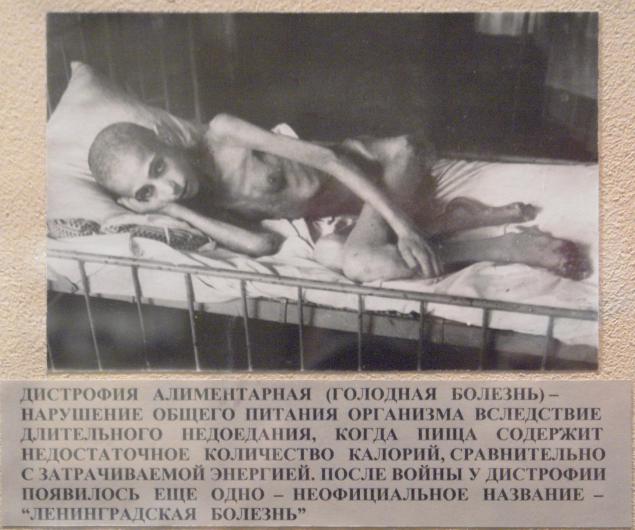
7
In spring 1943, Popkov, one of the first in the regiment, mastered new fighter La-5. In July 1943, during the fighting near Kharkov, he won his 25th victory.
The fate of many events Popkov, where his deeds grow to the scale of the feat of arms. Here and fight July 23, 1943, when the patient, little by little gaining an advantage, he spent a fight and knocked a row fighter 2 new modification - Messerschmitt Bf-109G-2; and fight beneath the lions, which successfully attacked enemy bombers, killing three of them, Popkov, along with his wingman Alexander Ivanovich Pchelkina (387 combat sorties, 61 air combat, 14 individual and two group victories), not having a single cartridge, managed Eight mites escape from German fighters; and the interception of Glogau February 16, 1945, where he shot down two Ju-87 and FW-190.
In the fighting on the right bank of the Dnieper squadron commander Vitaly Popkov personal combat increased the score to 30 downed enemy aircraft. By February 1945, the squadron commander of the 5th Guards Fighter Aviation Regiment (11 th Guards Fighter Division, 2 nd Guards Attack Air Corps, 2nd Air Army, 1st Ukrainian Front) Guard Captain VI Popkov committed 325 sorties, conducted 83 air battles personally shot down 36 enemy aircraft.
By the end of the war, according to official figures, he made 475 sorties, 38 times went to attack enemy airfields, ferries, manpower and equipment of the enemy. 117 air battles conducted a brave pilot, personally shot down 41 enemy aircraft, last May 1, 1945 - in the skies of Berlin. Fighting in the sky Kalinin, Kalach, Kharkov, Odessa, on the banks of the Dnieper, the Vistula and the Oder brave Soviet ace destroyed nearly half of the enemy regiment.
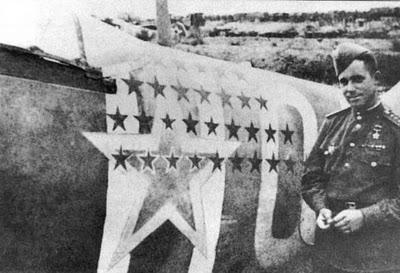
8
In August 1943, Vitaly with his wingman was distilled from the plant to the regiment brand new La-7. One Flew over the Black Sea, they saw the hospital ship - the ship "Georgia", carrying the wounded to the Minor land in Sochi, which is approaching the triple German fighters. (yes, the ship was carrying all the necessary markings of the Red Cross).
In plant distilled fighters there was no ammunition, but there was no new equipment - flashing lights. At the command Popkov, driven Pchelkin imitated their flashing lights tracer bullets shooting at the enemy, and went to the rapprochement with German aircraft. Having flares of tracers, German planes would prefer to avoid a fight and turned in the opposite direction, disappeared. During the fight Vitaly was awarded the title of Honorary Citizen of Sochi.
The ship "Georgia»
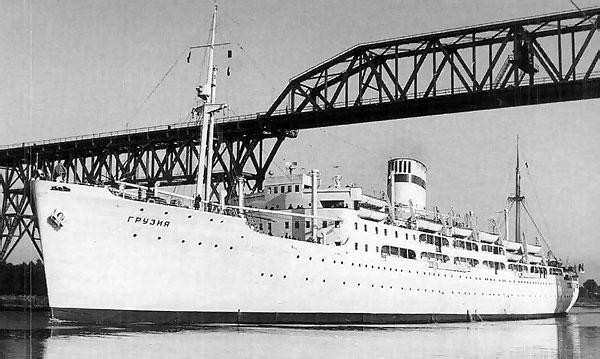
9
First Gold Star of the Hero of the Soviet Union Guard Lieutenant Popkov received after winning the Orel-Kursk direction of 43-year on 8 September for 24 downed enemy aircraft.
Second star was awarded the Hero of Vitaly in the 45th. By the day of the Victory Parade him there were already 47 aircraft shot down in person, and 13 - in the group. It is worth noting that the system of counting the same aerial victories not at all. Americans, for example, believe that Vitaly shot down 168 machines, but is a way of counting - the number of engines from the downed aircraft (flunked - Draw 4 stars!). However, the ACC considers this method of calculation is not correct, as the low-speed and bring down the hulking bomber much easier than winning the aerial duel with enemy fighters.
Twice Hero
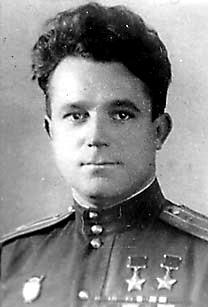
10
July 24, 1945 V.I.Popkov took part in the Victory Parade on Red Square in Moscow. After the war, he graduated from the Red Banner Air Force Academy in Monino (Hons) and the General Staff Academy (with honors).
After the war, Vitaly continued his service in the Air Force. He served as a squadron commander, later - the commander of the regiment, then - commander of the Navy Fighter Air Division, assistant commander of the Baltic Fleet Air Force.
In 1968 he was awarded the rank of lieutenant - general aviation. He mastered many jet fighters, including all types of "MiG" - from the MiG-9 and MiG-21, Su-7, Su-9 and Su-15. His last flight made in 1979. Since 1980 he taught at the Military - Air Force Engineering Academy. After transfer to the reserve, he engaged in social activities. Honorary member of three prestigious veterans' organizations: the Russian club's aces, the American Club Eagles Club and German pilots - fighters.
Since 1989 V.I.Popkov dismissed from the Armed Forces of the age, and then became involved in public activities.
In addition to Moscow, where a bust of the hero, V.I.Popkov is an honorary citizen of the cities: Kiev, Odessa, Dnepropetrovsk, Sochi, Gagra, Magadan, Prague, Parndorf, Vienna, Budapest, Bratislava, Krasnik (Poland).
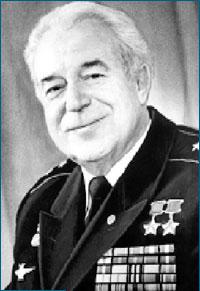
11
In 1969, while relaxing near Budapest, Vitaly was invited by his old friend Colonel General Aviation S.I.Harlamovym, served in the Southern Group of Warsaw Pact troops in Hungary, on the 30th anniversary of his native 5th GvIAP with who went through the war. At the same anniversary came a group of artists, among them Leonid Bykov, the future director and actor of the movie "Singing Squadron". Turns out, it was already our second meeting. According to Leonid, first held in 1944 under the Kramatorsk during the liberation of Ukraine. At the time, the young actor was in the children's ensemble, speaking in front of our aviation regiment.
The work on the script and the film Leonid Bykov said that "the protagonist of the Maestro to be an officer, a seasoned pilot." So he appeared in the film Captain Titarenko - ace, who fought in 1937 in Spain. By the way, the name of the main hero of the Bulls gave in memory of his friend.
Leonid Bykov
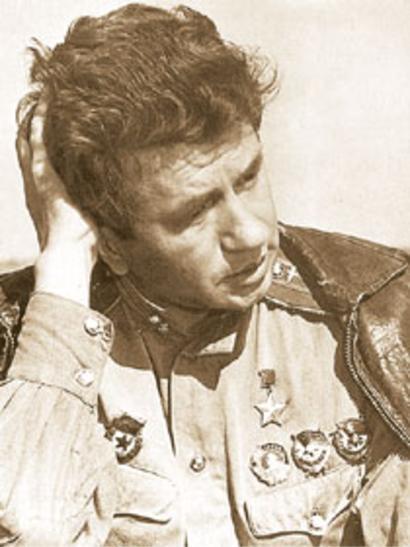
12
So, after all, why the "Maestro"? So called Vitaly regiment, first for his studies on the ground, and then for what he did in the sky. On the ground, he was a bandleader. And once in the sky over the Dnepropetrovsk his squadron were shot down 10 enemy aircraft, three of them personally Vitaly that his deputy, the Hero of the Soviet Union Seryoga Glinkin in the air turned to him: "Commander, can we start singing?" The mood of the commander would understand which, he said, "Come on!" And in the combat air heavenly choir sang: "Oh, the Dnieper, Dnieper, you're wide, the mighty ...". To sing a song from start to finish. Suddenly the earth so sweet female voice says, "Thank you, maestro!". Flattered Vitaly asked, "What was that for? During a concert or fight? "And the same sweet voice whispered:" And for and more ... "Such was the" Singing Squadron "! Not by chance has presented itself Cliffs of this division is the two fighters, calling them "Jolly Fellows". Incidentally, the "Maestro", in addition to the artistic leadership team, played the trumpet.
Sergei G. Glinkin
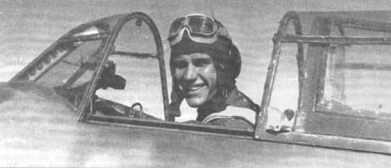
Different sources described the victory Vitaly over the aces of the Luftwaffe first magnitude, such as Erich Hartmann, Wilhelm Batz, Hermann Graf, Johann Genn and Hans Bockhorn, however, often under one description of the battle con in different sources the different names, so the result of their descriptions are not I became.
Died Vitaly Popkov in the Central Military Hospital February 6, 2010 88 year of life, 10.02.10 buried at Novodevichy Cemetery, the capital.
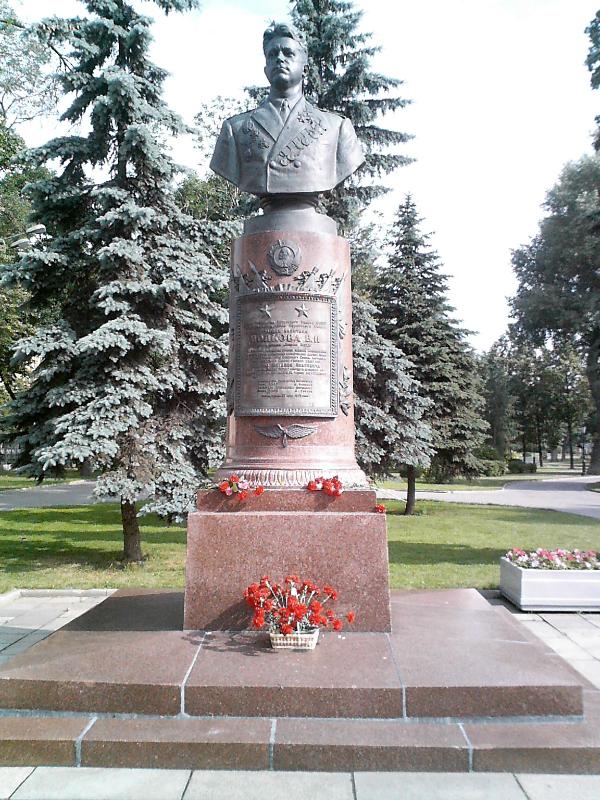
Source:
13 posts are expected to mnogobukvami and pictures.
February 6, 2010 passed away an outstanding pilot, ace WWII Vitaly Popkov. I tried somehow to link it to the existing information on the Internet, I hope I get something.
Vitaly Popkov was born on May 1, 1922 in Moscow. He graduated from the school № 94 in Moscow. In the Soviet Army in 1940. He graduated from Chuguev military pilots flying school in 1941 (in his release is 59 Heroes of the Soviet Union, 8 twice Hero of the Soviet Union: Popkov, Vorozheikin, Gritsevets, elections and others and three times Hero of the Soviet Union IN Kozhedub) Bataisk military -aviatsionnuyu school pilots in 1942. In the army in May 1942
Popkov VI commanded a unique squadron, in which 14 pilots - 11 became Heroes of the Soviet Union, eight met the Victory Day ... The squadron became known as the "Singing Squadron" after it was created by an amateur jazz orchestra.
During the fighting in World War II he made 648 sorties, conducted 117 air battles, shot down while 47 enemy planes in person and 13 aircraft in the group, made 123 of attack airfields and ground targets of the enemy (the latest version of the official data, as I understand it).
The Korean campaign as deputy division commander at INKozhedub, personally shot down 4 aircraft and one B-29 with the secret equipment on board forced to land on a strip of sea tide.

2
Vitaly got to the front only in the 42nd. Since the beginning of the war favorite service (he remained as an instructor in Bataisk school pilots) has become a burden, and after the 6th report, in spring, when the military situation again became rapidly complicated, Sgt Popkov was sent to the front, in a nice 5th Guards Fighter Regiment (207 th Fighter Air Division, 17th Air Army, South-Western Front). No heroic past, like the hero of Bykov, he was not. But it was defiant youthful moment. m of two characters in the movie - a nice and lively squadron leader Lieutenant Alexandrov, Grasshopper.
On arrival in the regiment, Sergeant Popkov immediately went to the airfield to one of the aircraft LaGG-3 - workout. And then he was kicked out of the combat vehicle mechanic who did not expect to see a disheveled young man in a combat pilot. And the view from Vitaly was unflattering - on the train he stole the coat and if not the commander of one of the railway stations, loans to its old sukonkoy which reached youngster to toe, you do not know how he would have looked in the face of the regimental commander Vasily Zaitsev, that is, immediately after the presentation, Vitali sent in flight training.
Requirements for the first flight of the minimum - taking off, a couple of laps in the zone and landing. But youth and excitement took its Vitaly and began to perform a variety of aerobatics without even leaving the zone. After landing, he went to the commander who all these "freaks" is not impressed, and to get along on the vigil of the aerodrome (in another version - the kitchen) up to about the end of time. As a result, the young pilot was not allowed to in flights for two months.
As you can see, Vitaly became the movie "go to fight some old" is not only a prototype of the legendary squadron leader, and a young lieutenant Aleksandrov-Grasshopper.
LaGG-3

3
In March 1942, at a time when almost the entire regiment flew on a mission, there were German planes - two bombers "Junkers-87" (in another version - Dornier-217, but, as I understand it, on the Eastern Front such was not such Stuck here) and two fighter "Messerschmitt-BF109" with the clear intention to attack the airfield. Vitaly has appeared closest to the aircraft, and has been - without a parachute flight uniforms and immediately jumped into the cab, took off, and rushed to the attack from the first call has filled slow-speed bomber. The commander of the regiment at this time shaving, and just what was - in a T-shirt, rushed to their planes and took off after him. But the German planes had already left. For downed aircraft commander Popkov was forgiven and his colleagues observed due respect - moved into the category "old", ie, Pilots had to his credit at least one person downed enemy aircraft. Its first leader was the Hero of the Soviet Union Vladimir Efremov.
By the way, Vitaly told that described the film gala reception Grasshopper after this fight and the phrase: "You Comrade Commander, his underwear scared away all Germans" were in reality.
Ju-87 Stuka

4
At first, the young pilot to an acute lack of combat experience, the ability to "read" the battlefield. This resulted in injury, damage to equipment, three times during the war Vitaliy Popkov was shot down.
One day, he saw a pair of Bf-109, going in the right lower bearing of his passing-collision course. The best position for the attack is not possible to come up with, but something unexpected happened. "Messer," as if stumbled upon some sort of barrier. They rushed up again, and a moment later both fan broke.
Driven by a steep set of went our way. Pilots mastered hunting passion. Very moving his throttle lever forward to the stop, he put the car in acceleration. The range between the aircraft quickly reduced. In the mind there was nothing but the prediction of the coming victory. Immediately followed by a heavy blow, the motor stopped, the fire started.
It became clear that the Germans acted on clearly conceived plan, and the plan worked. They sharply climbing fanned out. The calculation was simple. When someone in our rush for one of these coveted easy prey, the second by performing a maneuver, a blow from behind.
Well, who does not know him

5
Gradually, in the intense air battles, Vitaliy Popkov was gathering skill. And increased the number of his victories. A few days later in the battle of "6 vs 30" he was able to destroy even one bomber. In the battle of Rzhev, in August 1942, Vitali knocked down 5 aircraft. In one of the battles he was hit and bailed out.
Then, in the whirl of positional battle, he managed to catch the sights and hit the enemy fighter, a moment later disappeared in a cloud of the explosion, and immediately clear, as in the picture, he saw another "Messerschmitt Bf-109", neatly parked in the tail of the car his driving Guard Major Efremov. Very maneuver, so that through the hoarse roar of the engine seemed to hear the eerie crunch congested spars, Popkov threw his "LaGG" between enemy aircraft and aircraft commander ...
Several shells shook his car from under the hood seemed bluish light, removable growing yellow flame. Second - and the fire got inside, lit coveralls, gloves, fire scorched face. Already losing consciousness, the pilot turned the plane and fell out of the cab. Burned flag parachute did not hold, it only slowed the decline, fortunately, he fell into a swamp, where selected by parachute cords

6
At the end of March 1942 5 GvIAP in which twenty Vitaly served as flight commander, was requested to accompany the two transport aircraft Li-2 in Leningrad. They flew the First Secretary of the Leningrad party and Zhdanov Leningrad Front Commander General of the Army Zhukov. Before leaving, he went to the pilots and said that he was going to Leningrad, will my aunt, who worked in the orphanage №3, and offered to collect any products for children. Joined forces were collected at one hundred and fifty kilograms of product. Despite the fact that the planes had to fly over the "way of life", where the air is literally raged German air force, the job was completed successfully.
After landing, when the boss left, Vitaly asked the commandant to give the car to drop off food to the orphanage. Of course, there were all glad fell from the sky help. Aunt pilot held for orphanage showed the kitchen. There were cooking soup from a horse harness. Reza skin and lowered into vats, adding tufts of dry grass. Then he went into the room to the most emaciated children and saw a small, lifeless calf writhed on the bed. Combat pilot stood rooted to the spot and cried.
Once seen, Popkov quickly returned to the airport and transport aircraft pilots persuaded to merge part of the fuel and take the children. For this purpose, we released one plane, and children of the orphanage were taken to Moscow.
All 30 rescued Vitaly children survived, for them the pilot was "an angel from heaven»

7
In spring 1943, Popkov, one of the first in the regiment, mastered new fighter La-5. In July 1943, during the fighting near Kharkov, he won his 25th victory.
The fate of many events Popkov, where his deeds grow to the scale of the feat of arms. Here and fight July 23, 1943, when the patient, little by little gaining an advantage, he spent a fight and knocked a row fighter 2 new modification - Messerschmitt Bf-109G-2; and fight beneath the lions, which successfully attacked enemy bombers, killing three of them, Popkov, along with his wingman Alexander Ivanovich Pchelkina (387 combat sorties, 61 air combat, 14 individual and two group victories), not having a single cartridge, managed Eight mites escape from German fighters; and the interception of Glogau February 16, 1945, where he shot down two Ju-87 and FW-190.
In the fighting on the right bank of the Dnieper squadron commander Vitaly Popkov personal combat increased the score to 30 downed enemy aircraft. By February 1945, the squadron commander of the 5th Guards Fighter Aviation Regiment (11 th Guards Fighter Division, 2 nd Guards Attack Air Corps, 2nd Air Army, 1st Ukrainian Front) Guard Captain VI Popkov committed 325 sorties, conducted 83 air battles personally shot down 36 enemy aircraft.
By the end of the war, according to official figures, he made 475 sorties, 38 times went to attack enemy airfields, ferries, manpower and equipment of the enemy. 117 air battles conducted a brave pilot, personally shot down 41 enemy aircraft, last May 1, 1945 - in the skies of Berlin. Fighting in the sky Kalinin, Kalach, Kharkov, Odessa, on the banks of the Dnieper, the Vistula and the Oder brave Soviet ace destroyed nearly half of the enemy regiment.

8
In August 1943, Vitaly with his wingman was distilled from the plant to the regiment brand new La-7. One Flew over the Black Sea, they saw the hospital ship - the ship "Georgia", carrying the wounded to the Minor land in Sochi, which is approaching the triple German fighters. (yes, the ship was carrying all the necessary markings of the Red Cross).
In plant distilled fighters there was no ammunition, but there was no new equipment - flashing lights. At the command Popkov, driven Pchelkin imitated their flashing lights tracer bullets shooting at the enemy, and went to the rapprochement with German aircraft. Having flares of tracers, German planes would prefer to avoid a fight and turned in the opposite direction, disappeared. During the fight Vitaly was awarded the title of Honorary Citizen of Sochi.
The ship "Georgia»

9
First Gold Star of the Hero of the Soviet Union Guard Lieutenant Popkov received after winning the Orel-Kursk direction of 43-year on 8 September for 24 downed enemy aircraft.
Second star was awarded the Hero of Vitaly in the 45th. By the day of the Victory Parade him there were already 47 aircraft shot down in person, and 13 - in the group. It is worth noting that the system of counting the same aerial victories not at all. Americans, for example, believe that Vitaly shot down 168 machines, but is a way of counting - the number of engines from the downed aircraft (flunked - Draw 4 stars!). However, the ACC considers this method of calculation is not correct, as the low-speed and bring down the hulking bomber much easier than winning the aerial duel with enemy fighters.
Twice Hero

10
July 24, 1945 V.I.Popkov took part in the Victory Parade on Red Square in Moscow. After the war, he graduated from the Red Banner Air Force Academy in Monino (Hons) and the General Staff Academy (with honors).
After the war, Vitaly continued his service in the Air Force. He served as a squadron commander, later - the commander of the regiment, then - commander of the Navy Fighter Air Division, assistant commander of the Baltic Fleet Air Force.
In 1968 he was awarded the rank of lieutenant - general aviation. He mastered many jet fighters, including all types of "MiG" - from the MiG-9 and MiG-21, Su-7, Su-9 and Su-15. His last flight made in 1979. Since 1980 he taught at the Military - Air Force Engineering Academy. After transfer to the reserve, he engaged in social activities. Honorary member of three prestigious veterans' organizations: the Russian club's aces, the American Club Eagles Club and German pilots - fighters.
Since 1989 V.I.Popkov dismissed from the Armed Forces of the age, and then became involved in public activities.
In addition to Moscow, where a bust of the hero, V.I.Popkov is an honorary citizen of the cities: Kiev, Odessa, Dnepropetrovsk, Sochi, Gagra, Magadan, Prague, Parndorf, Vienna, Budapest, Bratislava, Krasnik (Poland).

11
In 1969, while relaxing near Budapest, Vitaly was invited by his old friend Colonel General Aviation S.I.Harlamovym, served in the Southern Group of Warsaw Pact troops in Hungary, on the 30th anniversary of his native 5th GvIAP with who went through the war. At the same anniversary came a group of artists, among them Leonid Bykov, the future director and actor of the movie "Singing Squadron". Turns out, it was already our second meeting. According to Leonid, first held in 1944 under the Kramatorsk during the liberation of Ukraine. At the time, the young actor was in the children's ensemble, speaking in front of our aviation regiment.
The work on the script and the film Leonid Bykov said that "the protagonist of the Maestro to be an officer, a seasoned pilot." So he appeared in the film Captain Titarenko - ace, who fought in 1937 in Spain. By the way, the name of the main hero of the Bulls gave in memory of his friend.
Leonid Bykov

12
So, after all, why the "Maestro"? So called Vitaly regiment, first for his studies on the ground, and then for what he did in the sky. On the ground, he was a bandleader. And once in the sky over the Dnepropetrovsk his squadron were shot down 10 enemy aircraft, three of them personally Vitaly that his deputy, the Hero of the Soviet Union Seryoga Glinkin in the air turned to him: "Commander, can we start singing?" The mood of the commander would understand which, he said, "Come on!" And in the combat air heavenly choir sang: "Oh, the Dnieper, Dnieper, you're wide, the mighty ...". To sing a song from start to finish. Suddenly the earth so sweet female voice says, "Thank you, maestro!". Flattered Vitaly asked, "What was that for? During a concert or fight? "And the same sweet voice whispered:" And for and more ... "Such was the" Singing Squadron "! Not by chance has presented itself Cliffs of this division is the two fighters, calling them "Jolly Fellows". Incidentally, the "Maestro", in addition to the artistic leadership team, played the trumpet.
Sergei G. Glinkin

Different sources described the victory Vitaly over the aces of the Luftwaffe first magnitude, such as Erich Hartmann, Wilhelm Batz, Hermann Graf, Johann Genn and Hans Bockhorn, however, often under one description of the battle con in different sources the different names, so the result of their descriptions are not I became.
Died Vitaly Popkov in the Central Military Hospital February 6, 2010 88 year of life, 10.02.10 buried at Novodevichy Cemetery, the capital.

Source:
